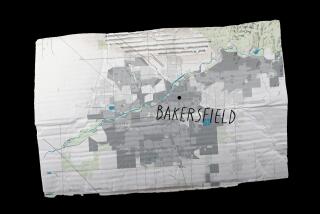Rampart officers’ civil award upheld
A federal appeals court upheld a $15-million jury verdict for three Los Angeles police officers who alleged they were falsely arrested and prosecuted as part of the Rampart corruption scandal.
The 9th Circuit Court of Appeals said there was evidence to support the jury’s verdict that the city and the Los Angeles Police Department violated the officers’ constitutional rights by arresting and charging the men without an adequate investigation.
The jury had awarded $5 million each to LAPD Officer Paul Harper, Sgt. Edward Ortiz and former Sgt. Brian Liddy. With interest and attorney fees, the city is now liable for about $18 million, lawyers for the officers said.
In upholding the verdict, the three-judge panel cited statements by detectives who admitted that they rushed their criminal investigation, and testimony from former Los Angeles County Dist. Atty. Gil Garcetti, who said he and his deputies were “hounded” by the LAPD to prosecute officers implicated in the Rampart scandal before the cases were ready.
The judges also noted that Rafael Perez, the ex-LAPD-officer-turned-informant, had given shifting accounts of one of the underlying incidents in which the three officers were charged.
Perez, as part of a plea agreement on cocaine charges, cooperated with authorities, telling them during dozens of interviews that he and his colleagues routinely framed, beat and otherwise mistreated suspects. As a result, more than 100 criminal convictions were overturned.
Based in part on Perez’s allegations, Harper, Liddy and Ortiz were arrested in April 2000 on corruption-related charges. After a monthlong criminal trial, Harper was acquitted of all charges. Liddy and Ortiz were acquitted on some counts but convicted along with another officer of obstruction of justice. Their convictions were thrown out, however, after the trial judge concluded that she had committed an error that tainted the verdict. The district attorney ultimately decided not to retry the officers.
The three officers filed a civil lawsuit in 2001, alleging that police and prosecutors conspired to deprive them of their civil rights by falsely arresting them, searching their homes at gunpoint, fingerprinting them and bringing them to trial based on evidence elicited from convicted felons and liars.
Their civil suit centered on the one case in which all the officers were acquitted: The April 26, 1996, arrest of alleged 18th Street gang member Allan Lobos, who Perez contended was framed by the officers on a gun charge.
During the federal civil rights trial, the jury heard testimony that the investigation into corruption at the LAPD was mismanaged by police and prosecutors who feuded about how to handle the probe.
Garcetti testified that then-LAPD Chief Bernard C. Parks told him in a telephone conversation that criminal charges should be filed against officers even if there wasn’t sufficient evidence to win a conviction. “Let’s get the case behind us,” Garcetti quoted Parks as saying. “If we prosecute the case, even if you lose the case, it’s over. It’s done.”
Garcetti said he thought Parks was “intentionally hampering” the investigation into corrupt police officers, the appeals court ruling states.
The jury “reasonably could have concluded” from Garcetti’s testimony that LAPD officials were pushing for prosecutions on skimpy evidence, and that it was “indicative of an official policy,” Judge Richard A. Paez wrote for the panel.
The officers alleged that they suffered physical and emotional injuries as a result of their arrests and prosecutions.
Harper developed high blood pressure and intestinal problems, began to drink heavily and became paranoid, Paez noted. Ortiz became suicidal and suffered heartburn, back and neck pain and anxiety attacks, the court said. Liddy reportedly gained 100 pounds, was hospitalized for chest pains and developed high blood pressure and anxiety.
In a statement, Police Chief William J. Bratton said the department was reviewing the ruling to determine “the next course of action.”
A call to City Councilman Parks’ office was not returned, and a lawyer for the city was not available for comment.
Two lawyers who represented the officers said they were pleased with the ruling.
The officers “feel exonerated,” said Etan Z. Lorant, one of their lawyers.
Joseph Y. Avrahamy, the other lawyer, said the LAPD frequently throws officers “under the bus” during political crises, and he hoped the verdict would send the message that “officers are not expendable.”
--
Times staff writer Joel Rubin contributed to this report.
More to Read
Start your day right
Sign up for Essential California for news, features and recommendations from the L.A. Times and beyond in your inbox six days a week.
You may occasionally receive promotional content from the Los Angeles Times.







